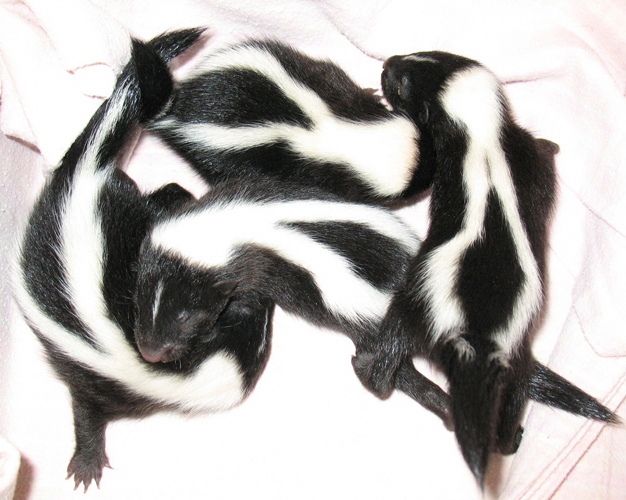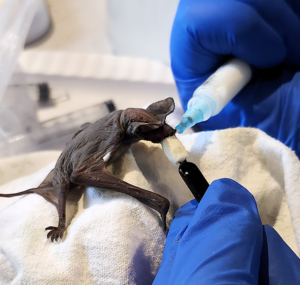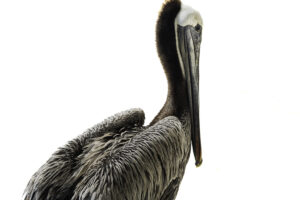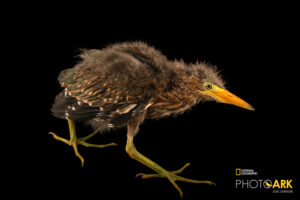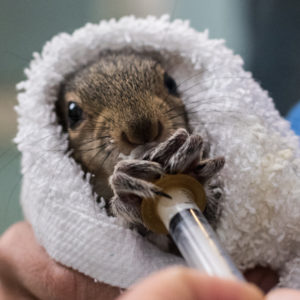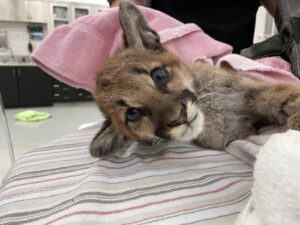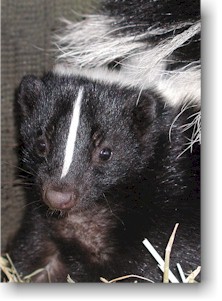 You have a mother skunk and her babies living under your house or deck. What should you do to get them to move out? Skunks are normally very predictable and easily manipulated. Hereʼs how to convince them to leave:
You have a mother skunk and her babies living under your house or deck. What should you do to get them to move out? Skunks are normally very predictable and easily manipulated. Hereʼs how to convince them to leave:
Place a light source such as a lamp, drop light or flashlight where you suspect the skunks are staying, so their home is well lit at night. Skunks are nocturnal and donʼt like light. At the same time, play a radio as loud as is comfortable for you and place several ammonia soaked rags in the general vicinity of the suspected den. Basically, what you are doing is making the skunk’s den unappealing to the skunk and they will readily move to more a more friendly home.
If convincing your family of skunks seems too drastic a move, let the family stay until the babies are old enough to take off on their own. They won’t stay forever and will be out and about by the end of summer.
Once you are sure the skunks have moved out, cover up their entry and exit. Remember, skunks dig for food, so make sure that when you block their entry, the barrier continues approximately 6 inches below the soil. Do not trap and relocate skunks. Even though this might seem like an easy solution to your skunk “problem”, it is illegal and not a permanent deterrent to others moving in. Last year, Native Animal Rescue received 39 skunks during April, May and June. Approximately 90% of those “rescued” skunks were the result of a mother skunk being trapped and relocated, thus leaving the babies behind to fend for themselves. 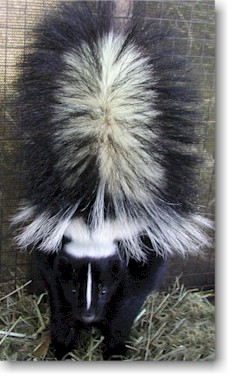
Despite their smelly reputation, skunks are beneficial to people. They are opportunistic feeders with about 70% of their diet being insects, such as grasshoppers, crickets, beetles, and wasps. They eat a huge number of agricultural pests, such as army worms, potato beetles and squash bugs. One of their favorite foods is grubs, which they dig up from the soil. Ahungry skunk can save people lots of money in terms of the amount of pesticides they might use if the skunk was not at work all night. Skunks will also eat spiders, snails, earthworms, carrion, berries, nuts, roots, small rodents and garbage. An easy source of food will quickly become their favorite, so avoid leaving dog and cat food out at night, which will draw skunks and other unwanted wildlife to your home. Skunks are shy, nocturnal creatures and would rather avoid you than spray you. If you cross paths with a skunk, pay attention to their warnings: handstand, loudly stamping feet and their scratch/scoot backwards motions. If you have been warned, simply stand still and wait for the skunk to move on or very slowly back away. Skunks have poor vision and quick movements can startle them and cause them to spray.
Take advantage of skunks. Allow them to be at your service and be your nighttime cleanup crew in your yard. If you have an injured or orphaned skunk or other, please call Native Animal Rescue at 831-462-0726 and take it to 1855 17th Ave. in Santa Cruz.
For more information visit www.NativeAnimalRescue.org.
Written by: Monique Smith-Lee
Wildlife Rehabilitator Naive Animal Rescue
